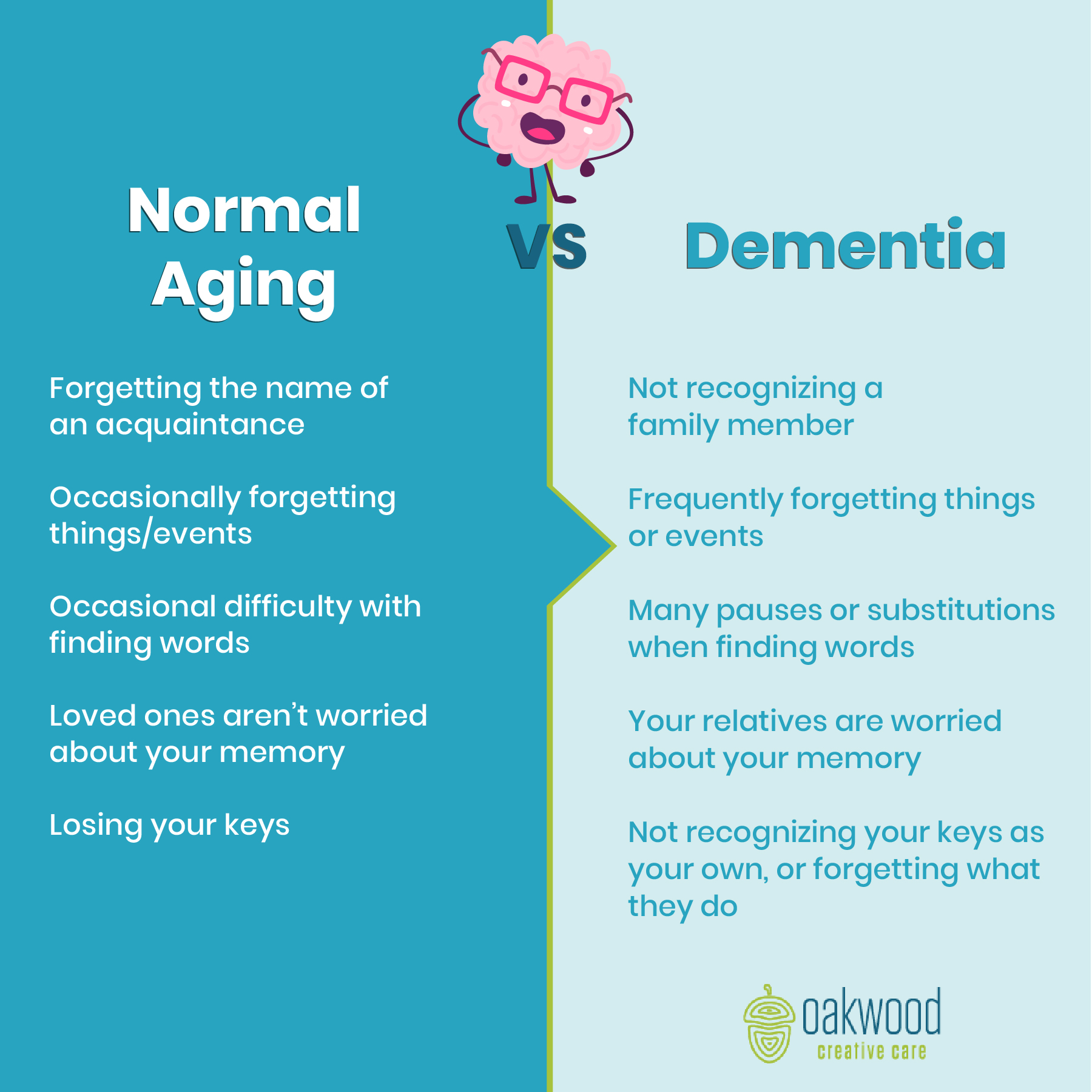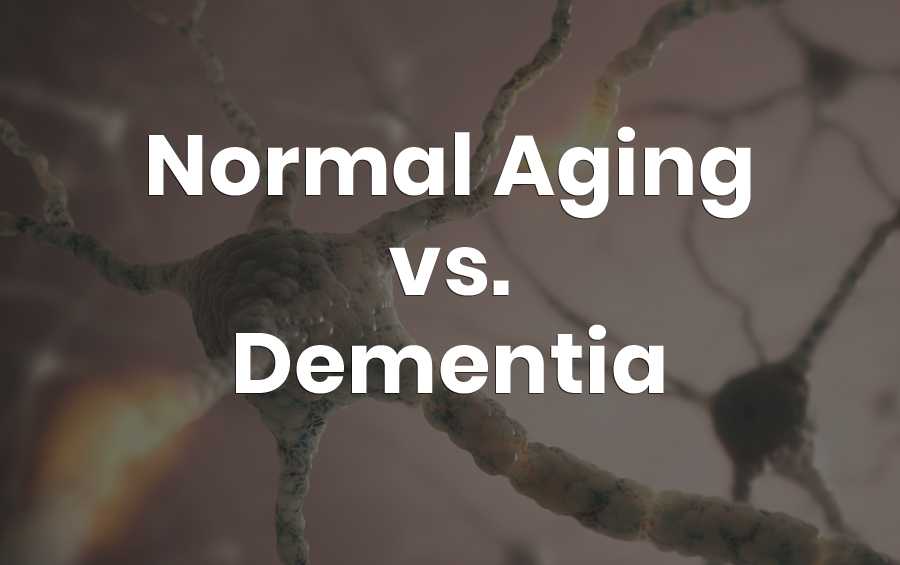Welcome to Part 2 of the series “What is Healthy Aging of The Brain” on normal aging vs. dementia. If you haven’t had the opportunity to read Part 1 (or it’s been a while) make sure to click here and read that article first.
Dementia is not a specific disease. Instead, it’s the word used to describe a group of symptoms which affect our memory. There are over 100 different types of progressive memory diseases – with Alzheimer’s being the most common in the United States. We’ll go over some of the others in a future posting.
Here’s an easy way to recognize the difference between Normal Aging vs. Dementia.
NORMAL AGING
- Not being able to remember the name of an acquaintance.
- Occasionally forgetting things and events.
- Difficulty finding words at times.
- You are worried about memory but your relatives are not.
- Perhaps you lost your car keys. But when you find them, you know what they are and what to do with them.
DEMENTIA
- Not recognizing family members or knowing their name.
- Frequently forgetting things or events.
- Numerous pauses and substitutions when finding words
- Your relatives are worried about your memory, although you’re not aware of any problems.
- You do not remember losing the keys, or you don’t know what they’re used for when they are found.
Additionally, with dementia you may see psychological changes such as: personality changes, depression, anxiety, paranoia, agitation, or inappropriate behavior.
If you or a loved one are experiencing these types of memory problems, you should discuss them with your doctor. It’s important to determine the underlying cause, as some treatable medical conditions can cause dementia symptoms.
Until you get a definitive diagnosis, I feel the most important rule to follow is:
DON’T MAKE ASSUMPTIONS!
A diagnosis doesn’t mean the person will have to stop his/her daily routine, or give up working right away. This disease is progressive, and affects each person differently.
And remember, ALWAYS treat people with dementia with respect and dignity!
Next time, we’ll talk about myths surrounding dementia and aging.
-Rosemary






